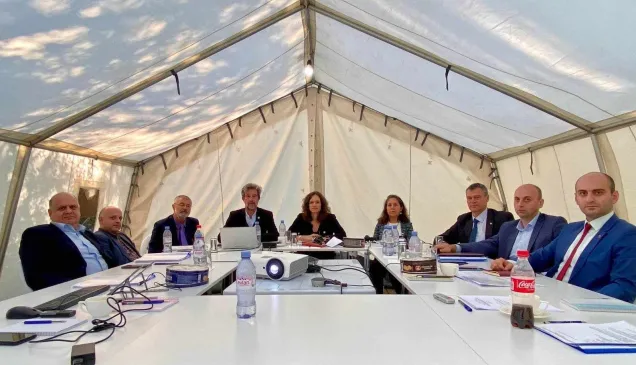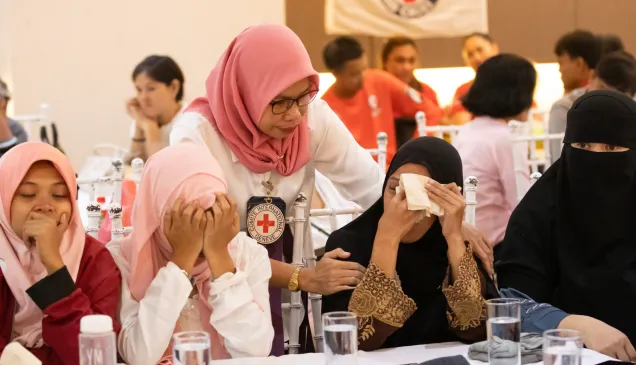On 8 April 2019, the International Committee of the Red Cross (ICRC) chaired the 13th meeting of the Coordination Mechanism, established with the purely humanitarian objective of clarifying the fate and whereabouts of people who have been missing in connection with the 1992–93 conflict in Abkhazia and its aftermath.
Georgian and Abkhaz participants gathered in Istanbul, Turkey, to discuss issues pertaining to the search, recovery and identification of human remains done in accordance with the mechanism. The participants delved into the state of affairs since the last meeting in December 2018. They discussed the development of local capacities to ensure a sustainable response to the issue and addressing the needs of families, as well as planning for 2019.
During the discussion, it was agreed that more needs to be done to the make the process swifter. “Given that 2,200 people remain unaccounted for more than 20 years after the conflict ended, the decision has been taken to step up the pace of the work. As part of their planning, participants agreed to explore over 30 potential gravesites this year and to jointly work on boosting the rate of identification for the mortal remains recovered so far,” said Lina Milner, the ICRC coordinator for the programme related to missing people and their families.
Since the time it was set up in 2010, the mechanism has helped make significant progress in addressing the families’ right to know and providing a dignified management of mortal remains. The remains of 431 people were recovered, of which 163 have already been identified and handed over to their families.
Meetings of the coordination mechanism are chaired by the ICRC by virtue of its neutral, impartial and independent mandate. The mechanism functions on a purely humanitarian basis and exists to address families’ right to know about happened to their missing loved ones.
For further information, please contact:
Maia Kardava, ICRC Tbilisi, tel: +995 5 99 55 88 18, mkardava@icrc.org



